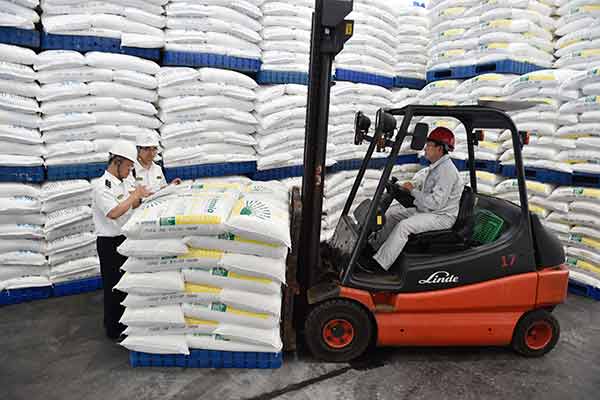As China calls for higher-quality development, Fujian province is ramping up its efforts to enhance homegrown brands amid the country’s broader push to build awareness of its own products.
At the first Exposition on China’s Indigenous Brands, which took place this month, Fujian showcased 17 self-innovating companies, those that have their own intellectual property, and three others in the emerging business sector of homegrown brands.
“Those self-innovating companies, which work on developing their own core technologies, are essential to the country’s economic growth and industrial upgrade,” said Gao Huiqing, head of the development research department of the State Information Center.
Starting from 2016, Fujian has been offering financial support to local companies for research projects.
“We also encourage companies to allocate more funds to develop their intellectual property,” said Zhang Fushou, deputy director at the Fujian Provincial Development and Reform Commission.
In response, many companies have increased their investment in research and development. Sports goods manufacturer Anta has raised its development investment from less than 0.5 percent of its sales costs in 2000 to 5.8 percent.
“It helps enhance the companies’ overall competitiveness,” said Zhang, “and increasing competitiveness is the key to companies’ long-term development and the country’s economic growth.”
Gao also said that an independent research process and wholly owned intellectual property will lead to an upgrade of the current industry and make domestic brands more influential in the global market.
Zhang added that the government is also working to promote local brands and help expand their business in both domestic and overseas markets.
“A lot of local brands unique to Fujian are hard to find elsewhere,” Zhang added.
Anxi Tie Guanyin, a variety of oolong tea, was discovered and cultivated in Anxi county in Fujian. The tea has now achieved a brand value of 142 billion yuan ($22 billion) and has become a leading national tea brand, according to Zhang.
“We also have policies to encourage high-quality manufacturing,” Zhang said. According to Zhang, companies that were nominated for or have won a China Quality Award will get government funding of three or five million yuan.
Up to now, local Fujian brands, such as Xiamen Airlines, have been nominated for or won China Quality Awards four times. Many are national leaders in various manufacturing sectors.
According to Zhang, Fujian also offers financial and policy support for high-tech and green manufacturing industries.
“For instance, we have specialized funds for the lithiumion fueled energy industry, which has achieved an average annual growth rate of 144 percent since 2008,” Zhang said.
Gao said that innovation is an essential part of China’s high-quality manufacturing, and the government also offers policy and financial support for tech innovation and startups in emerging industries.


